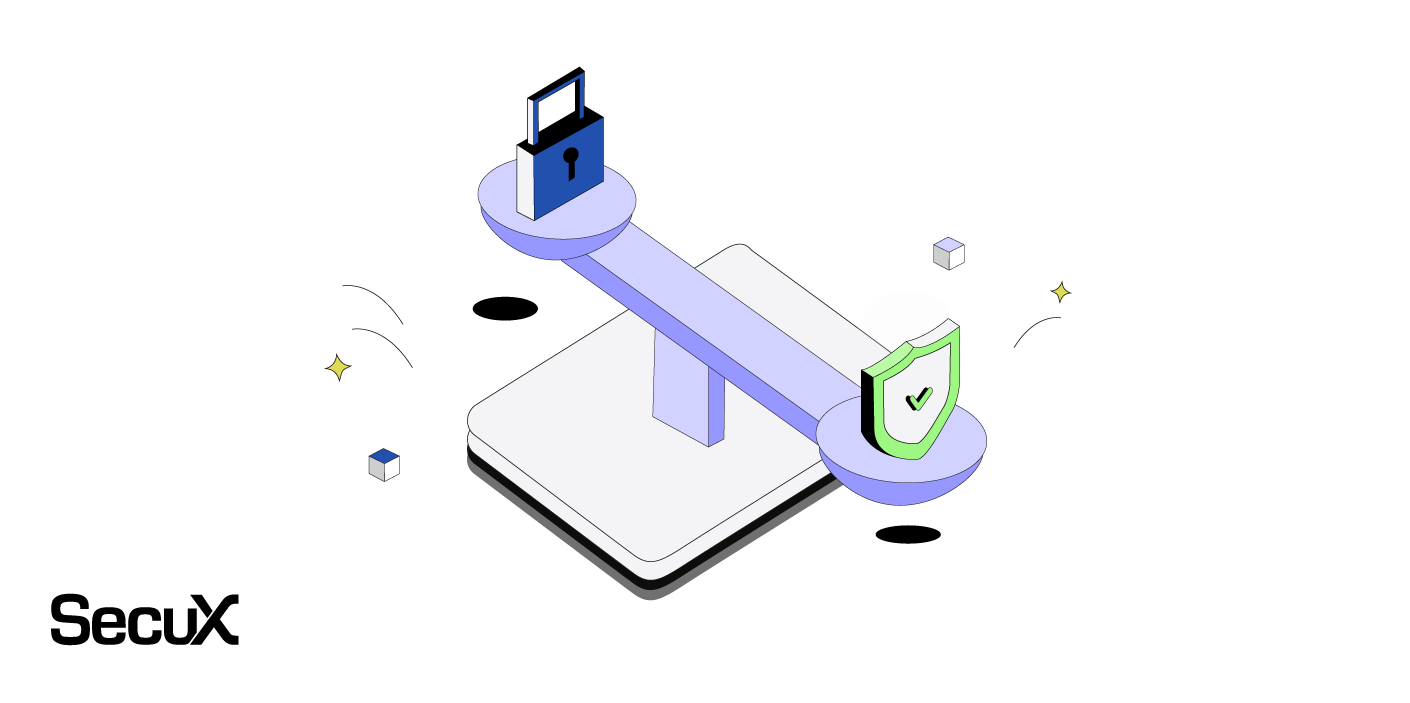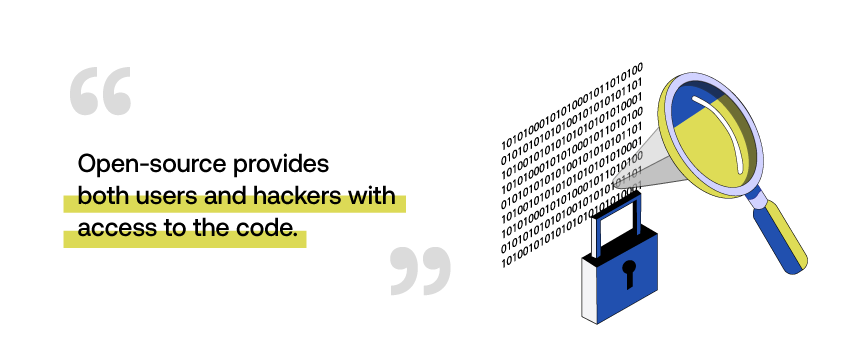
Disclaimer: The information provided in this article is for educational purposes only and should not be considered as financial advice.
The Challenge of Open Source in Hardware Crypto Wallets
Crypto hardware wallets provide the utmost security for those with digital assets – this is a less debated topic than open-source vs proprietary systems. As we see more people valuing open-source codes, we felt it imperative to address a misconception we often see, that trust and security are not always synonymous.
This statement might bring some debate, but we welcome the discussion and would love to shed light on the nuances of this topic.
Transparency VS Vulnerabilities

Open-source systems provide users with an unobstructed view of the inner workings of the devices. Allowing this insight fosters trust by allowing users to verify the integrity of the hardware. However, this very transparency can be seen as a double-edged sword, as it does not guarantee immunity from vulnerabilities – a misconception we often see.
In fact, the open nature of the source code can inadvertently expose potential targets and weaknesses, making it easier for those with malintent to identify and exploit security flaws. The relationship between transparency and vulnerabilities highlights the need for a careful balance between trust and security for crypto hardware wallets.
Trust in Open Hardware – Is It Misplaced?
As mentioned, open-source designs offer a level of transparency that encourages trust among users who can evaluate the internal workings of the hardware. However, it’s crucial to understand that trust founded solely on transparency has its limitations.
The very openness that promotes your trust may not shield against backdoors or vulnerabilities, leaving the open-source code open to exploitation. While transparency is a crucial aspect, it doesn’t guarantee the foolproof security users may expect. There is an inherent need for a comprehensive approach to trust and security, beyond just the hardware’s open nature.
Security Beyond the Hardware

In terms of crypto hardware wallets, security extends far beyond the physical device, as it should. While the hardware itself must incorporate the highest security measures, it is essential to recognize that the overall safety relies on the software, firmware, and user practices.
Securing a crypto wallet also means keeping an eye on firmware updates, using it in safe and secure settings, and being careful about potential threats that go beyond just the physical device.
Crypto users are encouraged to adopt secure practices, acknowledging that safeguarding digital assets demands more than just a secure piece of hardware – it’s how you use it.
Proprietary Solutions in Hardware Wallets
There is an ongoing debate surrounding crypto hardware wallets, and the discussion of open-source versus proprietary solutions remains a hot topic. Proprietary systems offer a unique advantage when it comes to keeping digital assets safe. They provide a level of security that is guarded diligently and not easily breached.
Well-maintained proprietary systems offer a trusted shield for your cryptocurrency holdings, giving users an alternative approach to security. While the open-source approach is favored (and asked for) by many, it’s crucial to recognize the merits of proprietary solutions.
The company’s reluctance to share its code isn’t rooted in a lack of trust. Instead, it’s a precautionary measure to prevent potential exploitation by hackers.
Trust and Security – A Balancing Act
There is a definite need to strike a balance between trust and security. Hardware wallet manufacturers like SecuX face the challenge of deciding which aspects to open source and which to keep proprietary. This is why we share some of our code, but not all of it.
The ultimate goal is to ensure that users can trust in the integrity of the product while still maintaining stringent security measures. Reaching the right equilibrium is the key to navigating the relationship between trust and security in the crypto space.
Tips for Crypto Wallet Users
While there are merits to open-source and proprietary code, it’s important to remember security is more than just that. It also encompasses the software, firmware, and user practices. We have some tips for all crypto wallet users out there:
- Use hardware wallets in trusted environments
- Keep up with regular firmware updates
- Exercise caution and vigilance regarding potential threats
- Stay informed and adapt to the evolving crypto space
Conclusion
The relationship between trust and security in hardware wallets is intertwined yet distinct. While transparency indeed fosters user trust, it doesn’t inherently guarantee security. The debate between open-source and proprietary solutions continues, each offering unique advantages.
Striking the right balance between trust and security is the key to securing your assets.
Users, too, play an equally vital role by adopting secure practices, as does keeping up with regular updates and making sure you’re accessing your funds in trusted environments.
Related Articles
SecuX W20 X Trend Micro: The Ultimate Scam-Proof Hardware Wallet for Crypto and NFTs
What is a Hierarchal Deterministic Wallet?
What is Crypto FOMO and How to Deal with It?

0 comments